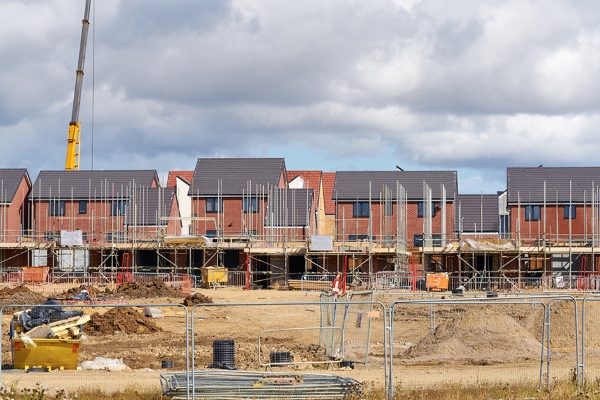Thames Tap partners, sponsors and contacts have given a cautious welcome to Government proposals which would ease some restrictions on building new homes.
Proposed amendments to the Levelling Up and Regeneration Bill, currently going through the House of Lords, will mean Natural England’s rules on nutrient neutrality, which initially came from the EU, would instead become guidance.
The current rules, intended to prevent chemicals entering rivers, prevent development in some protected areas. The amendment is expected to allow many consented scheme to progress.
Levelling Up Secretary Michael Gove has said the move is a benefit of Brexit but campaign groups oppose it.
Brian Dowling, partner with Boyes Turner, said: “Ultimately, we all want clean rivers and shorelines, that aren’t filled with decaying poisonous green algae. Eutrophication has been a growing, harmful problem in the Solent and other parts of the country.
“But we also all want a home to call our own, and we all eat (and digest) the food grown by farmers, using nitrate and phosphate fertilisers.
“And it is agriculture, and the way we treat and process waste water, which is leading to the environmental harms and the need to slow down and prevent development that would slightly increase that harm.
“The Natural England guidance on nutrient neutrality had been holding up thousands of homes, on schemes that were otherwise consented and seen as suitable for development.
“And it seems to be accepted that the real issue is to address how we deal with water treatment (when we have privatised utility networks) and how we deal with consents for discharging from farms into watercourses.
“Hopefully, the proposed amendment to LURB will achieve this, so long as it is backed up with protracted, targeted investment and regulation to address the real source of the problem.”
Terri Warren, senior associate – commercial real estate with IBB Law, said: “The Levelling Up and Regeneration Bill is currently going through Parliament.
“Michael Gove has proposed an amendment to the bill which would no longer place a positive obligation on developers to provide a nutrient neutral site when constructing new developments near watercourses.
“Whilst there is clearly a need for additional housing within England and Wales, these plans are controversial because of the potential adverse effect on the environment and the cost to the tax payer of mitigating those effects.
“It will be interesting to see whether developers voluntarily adopt the guidance or something akin to it, (assuming the amendment is accepted), given the current focus of ESG policies and potential funding implications.”
Lawrence Turner, director of planning consultancy Boyer, said: “If enacted, the Government’s amendments to the Levelling Up and Regeneration Bill will fast-track the construction of more than 100,000 homes.
“Indeed, while it’s important to acknowledge the importance of tackling river nutrient pollution, the impact from new housing development is infinitesimally small. The pre-existing EU legislation burdens housebuilders with mitigating a disproportionately small amount of phosphates, leading to excessive costs or insurmountable challenges before construction can begin.
“With the newly proposed amendments, these demands are eliminated, clearing the path for the construction of thousands of homes – some already approved by local authorities.
“This opens the prospect of new homes without large-scale fallowing of farmland, preserving crucial agricultural resources.”
© Thames Tap (powered by ukpropertyforums.com).
Sign up to receive our weekly free journal, The Forum here.












